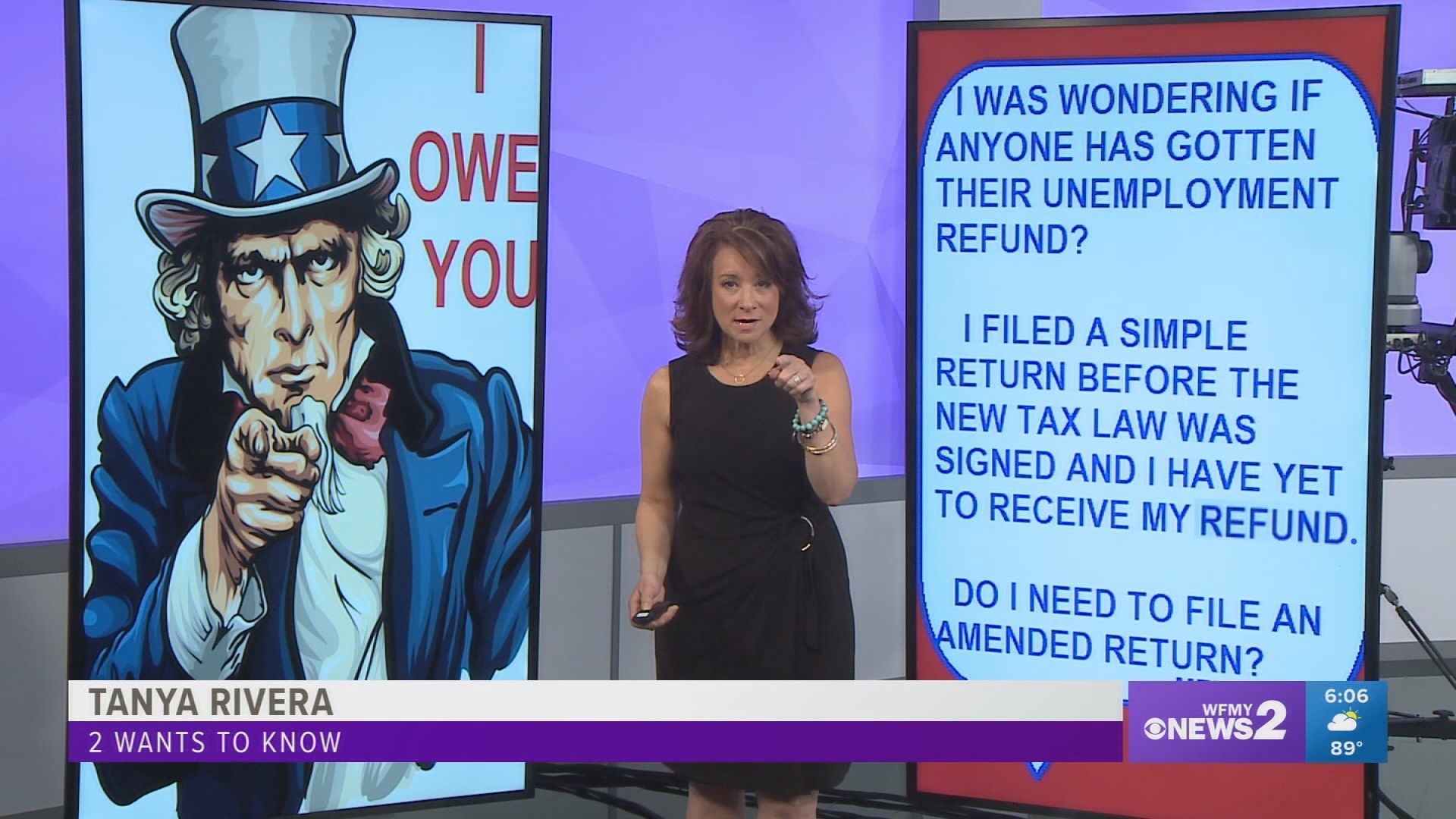WASHINGTON — The Internal Revenue Service will be sending out millions of additional refunds this week to taxpayers who are due money for overpaying on unemployment benefits.
Who are getting these refunds? Americans who took unemployment in 2020, but filed their taxes before passage of the American Rescue Plan on March 11.
Tax filing season had been open for about a month when the relief bill was signed into law. The legislation made it so Americans wouldn't need to pay taxes on jobless benefits they received last year, up to a certain amount.
The IRS said Tuesday the third round of refunds going out this week will be sent to nearly 4 million taxpayers, with an average refund of $1,265, which means some will receive more than that and others less.
"For taxpayers who overpaid, the IRS will either refund the overpayment, apply it to other outstanding taxes or other federal or state debts owed," the agency said in a news release Tuesday.
The IRS previously said it estimated around 13 million Americans may be eligible for an additional refund.
When will you get your refund?
The refunds sent by direct deposit this week will begin arriving in accounts on July 14 and refunds by paper check will be sent starting July 16, according to the IRS.
If you think you're eligible for an additional refund because of unemployment in 2020 but haven't gotten your money yet, don't fret, the agency said it plans to continue issuing additional rounds of refunds throughout the summer.
Who is eligible for unemployment tax refund?
The American Rescue Plan forgave taxes on the first $10,200 of unemployment for individuals, including those who are married but file taxes separately. It forgives $20,400 for couples filing jointly.
The forgiveness is only for taxpayers who earned less than $150,000.
How will you get the refund?
The IRS will issue refunds through direct deposit if they have your banking info, otherwise the refund will be mailed as a paper check to the address on record. The IRS also plans to send a letter explaining the corrections.
CAN THIS REFUND BE GARNISHED?
The IRS confirms:
These refunds are subject to normal offset rules, such as past-due federal tax, state income tax, state unemployment compensation debts, child support, spousal support, or certain federal nontax debts (i.e., student loans). The IRS will send a separate notice to the taxpayer if the refund is offset to pay unpaid debts.
WFMY's Tanya Rivera contributed to this report.

